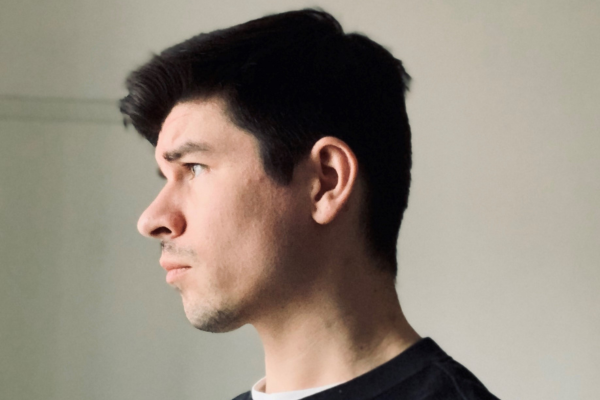"I was tired of always transferring other people's realities of life to my own."

© Marlon Brand
Marlon Brand talks exclusively about queer literature on his channel @booksaregayasfuck. During Pride Month in June, he will present a queer book recommendation from Italy, the guest country of #fbm24, to the Frankfurter Buchmesse Instagram community every Sunday.
He told us in an interview beforehand why he decided to focus on queer topics on his channel, how he and his colleague Tobi Schiller agreed on the selection of their queer canon and whether the choice of title for Pride Month was an easy one.
Your Instagram channel @booksaregayasfuck clearly focuses on queer literature. What made you decide to focus exclusively on queer literature on your blog?
I studied general and comparative literature. Queerness rarely played a role as a literary topic in seminars and lectures, even with authors such as Thomas Mann, Marcel Proust, Oscar Wilde or Virginia Woolf. Queerness is certainly not always the guiding motif in the production and reception of literature, but it feeds both processes - consciously and unconsciously. I was interested in the interplay between queerness and other themes, motifs, subjects, etc., without having to 'reduce' texts to this one aspect. Of course, it was also because I couldn’t find the reality of my life as a gay working-class child in an academic environment in any texts. I was tired of always having to do this translation work in literature myself, i.e. transferring other people's realities of life to my own (which I generally consider to be very important). So, without further ado, I looked for a German-language blog to do some research on the subject and perhaps also to exchange ideas. When I couldn't find anything comparable, the idea of starting a blog myself was quickly born.
With your channel, you create visibility for queer titles. From your perspective, how is the field of queer literature represented on the book market in general and at trade fairs? Is the community well connected?
Compared to the almighty American book market, there is certainly still room for improvement in terms of both representation and networking here in Germany. However, I have the impression that a lot is currently happening on the book market - this also has something to do with the fact that 'Blutbuch' by Kim de l'Horizon won the German Book Prize in 2022.The book industry has (hopefully) recognised that queer literature can be experimental and challenging and at the same time be read by a broad audience. This at least applies to many of the large publishing houses, while the small independent ones have always been braver. In addition, there are also queer publishers such as Albino Verlag, which publish queer texts and works that would not find a place in the programme of mainstream publishers. This spring, however, it feels like more queer titles have been published than ever before. However, I hope that the book market does not perceive this development as a mere trend.
Together with Tobi Schiller, you publish the newsletter "Queerer Kanon?" (Queer canon?). How do you put it together? Do you decide on the topics and titles together?
And do you always agree on them?
We regularly discuss what we are currently reading and then decide together which of the books we will present. We rarely decide in advance on topics, works or authors that absolutely have to be included in an issue. However, we do try to make sure that we avoid existing exclusion mechanisms and hierarchies in our selection and don't just present gay white men from the English-speaking world. Ultimately, however, we are also limited in our selection because, for example, few queer texts are translated from smaller languages or certain texts are out of print. And we are also only two gay cis men - our perspective alone is limited. But the question mark in the title of the newsletter also stands for all of this. For this reason alone, Tobi and I don't always have to agree with each other.
Italy is the Guest of Honour at Frankfurter Buchmesse 2024 and you selected some queer Italian titles for us to mark Pride Month in June. Was that an easy task or a challenge?
Are there any themes that you have come across repeatedly?
There is of course queer literature from Italy that has also been translated into German, but these are isolated works (if you leave out cult authors such as Pier Paolo Pasolini) - and above all texts that are dedicated to a gay protagonist - which can often only be found in antiquarian bookshops. So anyone looking for lesbian or trans literature in German translation will find little or nothing. However, small independent publishers such as nonsolo Verlag are publishing authors such as Gaia Manzini and Maurizio Fiorino, and the major trade publishers are at least publishing a few queer titles to match the host country.
You can find the Instagram account @booksaregayasfuck(opens in a new window) here.
The interview was conducted by Svenja Pütz.
